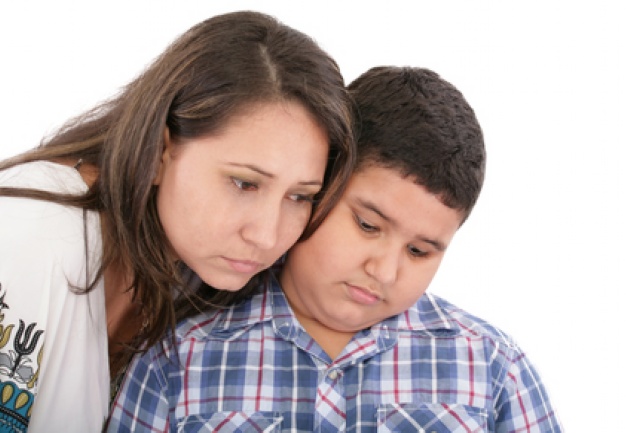The best way to support your child in
this transition to high school is to discuss with him/her the major changes
they will be facing. Your child will go
through more changes, both physically and socially, in the next three years
than he or she has experienced since the first three years of life. But
remember that teens switch between a demand for independence and a need for
direction and regulation. SO, rest
assured that despite the fact that teens seldom appreciate direct advice, they
need you!
Talk to your child
before Grade 7 starts about the differences from elementary school and what to
expect in junior high. The most
successful students are those whose parents are involved; volunteer when you
can, meet teachers, attend school meetings or events and read monthly school newsletters.
Encourage the use of
agenda books for homework and check them for
assignments. They still have the same habits they had in elementary school and
they still need guidance.
Set a regular time and
place for homework to be done. Give clear
expectations and reinforce them. Contact
the school and teacher(s) if you notice that your child does not bring any work
home. Don’t wait until the report card
comes! Teacher names are found on your
child’s daily schedule. Call the school
secretary and leave a message for each of your child’s teachers or get their
e-mail address on your first orientation evening. Have faith
in the teachers and coaches. They will become wonderful mentors and advisers.
Set your
expectations. Teens will likely
act unhappy with expectations you place on them. However, they usually
understand and need to know that their parents care enough about them to expect
certain things such as good grades, acceptable behavior, and adherence to the
rules at school or at home. If parents have sensible expectations, teens will
likely try to meet them. Without reasonable expectations, your teen may feel
you don't care about him or her. Share your family values with your teen and
talk about what you believe is right and wrong. Adolescence is a time
when children begin to define themselves. Instead of preaching, Listen to what they have to say and try
to guide them to their own solutions.
Encourage your child
to participate in school events.
Participation in school activities is not only important for your child
to feel part of his/her community but your child learns social skills that are
different from those learned in a classroom.
It prepares them for the adult world. However, new experiences like
school dances and Friday night hockey games require advance conversations about
rules and expectations. Be clear about curfew, appropriate behaviors in public
and transportation issues. When at home, teens shouldn't have unlimited access
to TV or the Internet in private — these should be public activities. Access to
technology should also be limited after certain hours (say 10 PM or so) to
encourage adequate sleep. It's not unreasonable, for any parent, to have cell
phones and computers off limits after a certain time.
Be supportive. That means giving your children a framework
of values and a work ethic and then letting go so that they can explore the
boundaries of that structure. Some days, they will thrive. Other days, they will start the term project
the night before. When that happens, breathe, provide food and drink, but step
away from the glue gun. It is so easy to
step in and act like “helicopter” parents, taking care of things for our
children instead of letting them figure it out for themselves. Like, writing
their English paper, or bringing their forgotten homework to school for the
100th time. But just because we can bail out our kids, doesn't mean we should.
Recall all the times you were tested as a kid, either academically or socially.
Were your parents around to rescue you? No, they had their lives to lead. But
those incidents taught you to cope with disappointment and made you who you
are. Give your kids the same moments. Someday, they will thank you!
Lastly, Always act
like a parent; A warm relationship
is ideal, but sometimes you need to do things your child won't understand.
Remember, you're a parent, not a pal. Your responsibility is to ensure the
well-being and safety of your child. Intervening in a dangerous situation (like
ones involving drugs or abuse) might make your child dislike you, but it will
also save his or her life. Don't go along with their ideas "just to get
along" but always do what's best for your child. At the same time, kids
this age are more and more aware of how others, especially their peers, see
them. They are desperately trying to fit
in. Don’t be offended when their peers become much more important in terms of
making decisions. Never forget that they still need you to be there as their
guide, regardless.
You may have a hard time imagining it, but eventually,
your child will become an independent, responsible, communicative young adult.
But remember the words of Joyce Maynard, “It's not only children who grow.
Parents do too. As much as we watch to see what our children do with their
lives, they are watching us to see what we do with ours. I can't tell my
children to reach for the sun. All I can do is reach for it, myself.”

 In The Latest Issue:Latest Issue:
In The Latest Issue:Latest Issue:
- A Bittersweet Farewell
- The new Laval Aquatic Co...
- The End of an Era:
Articles
Calendar
Virtual- ANNUAL TEACHER APPRECIATION CONTEST
- APPUI LAVAL
- ARTS & CULTURE
- CAMPS
- CAR GUIDE
- CCIL
- CENTENNIAL ACADEMY
- CHARITY FUNDRAISING
- CITYTV
- COSMODŌME
- COMMUNITY CONNECTIONS
- COVER STORY
- DINA DIMITRATOS
- ÉCOLE SUPÉRIEURE DE BALLET DU QUÉBEC
- EDITORIALS
- ÉDUCALOI
- EDUCATION
- EMPLOYMENT & ENTREPRENEURSHIP
- FŹTE DE LA FAMILLE
- FŹTE DU QUARTIER SAINT-BRUNO
- FAMILIES
- FESTIVAL LAVAL LAUGHS
- FŹTE DE QUARTIER VAL-DES-BRISES
- FINANCES
- GLI CUMBARE
- GROUPE RENO-EXPERT
- HEALTH & WELL-BEING
- 30 MINUTE HIT
- ANXIETY
- CHILDREN`S HEALTH & WELLNESS
- CLOSE AID
- DENTAL WELLNESS
- EXTREME EVOLUTION SPORTS CENTRE
- FONDATION CITÉ DE LA SANTÉ
- GENERAL
- HEARING HEALTH
- MESSAGES FROM THE HEALTH AGENCY OF CANADA
- MENTAL HEALTH
- SEXUALITY
- SOCIAL INTEGRATION
- SPECIAL NEEDS
- TEENS
- THE NUTRITION CORNER
- THE NUTRITION CORNER - RECIPES
- VACATION DESTINATION
- WOMEN'S FITNESS
- WOMEN'S HEALTH
- HILTON MONTREAL/LAVAL
- HOME & GARDEN
- INTERNATIONAL WOMEN'S DAY
- JAGUAR LAVAL
- LAVAL Ą VÉLO
- LAVAL FAMILIES TV SHOW
- LAVAL FAMILIES MAGAZINE CARES
- LAVAL URBAN IN NATURE
- LE PARCOURS DES HÉROS
- LES PETITS GOURMETS DANS MA COUR
- LEON'S FURNITURE
- LEONARDO DA VINCI CENTRE
- LFM PREMIERES
- LIFE BALANCE
- M.P. PROFILE
- MISS EDGAR'S AND MISS CRAMP'S SCHOOL
- MISSING CHILDREN'S NETWORK
- NETFOLIE
- NORTH STAR ACADEMY LAVAL
- OUTFRONT MEDIA
- PASSION SOCCER
- PARC DE LA RIVIČRE-DES-MILLE-ĪLES
- PĀTISSERIE ST-MARTIN
- PIZZERIA LĢOLĄ
- PLACE BELL
- PORTRAITS OF YOUR MNA'S
- ROCKET DE LAVAL
- SACRED HEART SCHOOL
- SCOTIA BANK
- SHERATON LAVAL HOTEL
- SOCIÉTÉ ALZHEIMER LAVAL
- STATION 55
- STL
- SUBARU DE LAVAL
- TECHNOLOGY
- TEDXLAVAL
- TODAY`S LAURENTIANS AND LANAUDIČRE
- TODAY`S LAVAL
- WARNER MUSIC
- THIS ISSUE
- MOST RECENT
Magazine
Parent Anxiety….
Is your child starting high school this fall? Is the word 'teenager' causing you anxiety?
Articles ~e 105,7 Rythme FM 4 chemins Annual Teacher Appreciation Contest Appui Laval Arts & Culture Ballet Eddy Toussaint Camps THIS ISSUE MORE...
CONTESTS Enter our contests
CONTESTS Enter our contests
CALENDAR
Events & Activities
COMMUNITY Posts Events
PUBLICATIONS Our Magazine Family Resource Directory
LFM BUSINESS NETWORK Learn more
COUPONS Click to save!
COMMUNITY Posts Events
PUBLICATIONS Our Magazine Family Resource Directory
LFM BUSINESS NETWORK Learn more
COUPONS Click to save!
SUBSCRIPTIONS
Subscribe to the magazine
Un-Subscribe
E-NEWSLETTER Subscribe to our E-newsletter Un-Subscribe
WRITE FOR US Guidelines & Submissions
POLLS Vote today!
E-NEWSLETTER Subscribe to our E-newsletter Un-Subscribe
WRITE FOR US Guidelines & Submissions
POLLS Vote today!
ADVERTISERS
How to & Media guide
Pay your LFM invoice
SUGGESTIONS Reader's Survey Suggest a Listing
LFM About Us Our Mission Giving Back Contact Us
SUGGESTIONS Reader's Survey Suggest a Listing
LFM About Us Our Mission Giving Back Contact Us
 PICK-UP LOCATIONS
Get a copy of LFM!
PICK-UP LOCATIONS
Get a copy of LFM!
TERMS & CONDITIONS Privacy | Terms
ISSN (ONLINE) 2291-1677
ISSN (PRINT) 2291-1677
Website by ZENxDESIGN



 BY:
BY: 
Tweet
Share